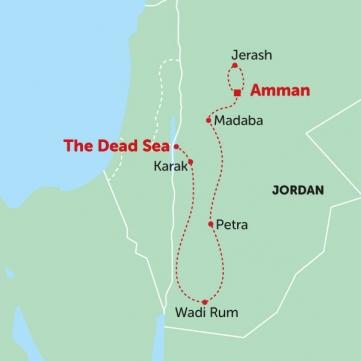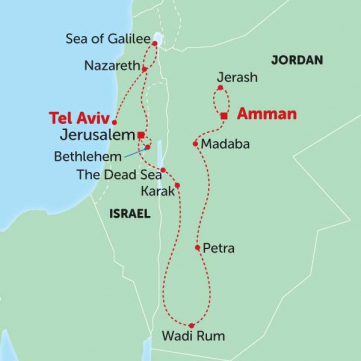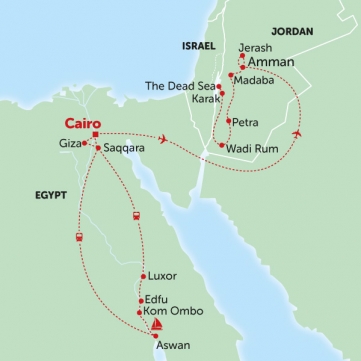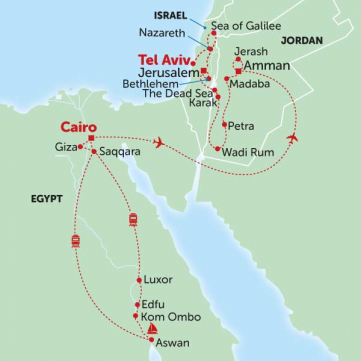Book NOW for $1 £1 €1 • Flexible Payments • No Change Fees • Private Departures Available
- Home >>
- Cost of travel in Jordan
Cost of travel in Jordan
With a reputation for being one of the most expensive countries in the Middle-East, Jordan doesn’t exactly favour the budget backpacker. However the majority of the high costs are mainly down to excursions and attractions. For example, the entrance fee to Petra costs around JD 50 ($70). Costs of attractions can quickly add up, that's why it's great to join a group tour with Tucan Travel - the entrance fee to Petra is included! Food costs however are relatively reasonable.
The cost of your trip can differ greatly depending on how you like to spend your holidays. Do you prefer seeking out local diners to try all the incredible street food on offer? Or do you prefer to live the high life, dining on banquets and cocktails? Jordan caters for every range of budget so it’s up to you how much you spend. The currency in Jordan is Jordanian dinar (JD) and $1 USD is the equivalent of around 0.70 JD.
For a holiday to Jordan, we recommend an average daily allowance of 40 JD ($56) for a budget savvy traveller, 50 JD - 120 JD ($70 - $170) for mid-range travellers, and upwards of 120 JD ($170) if you like a bit of luxury.
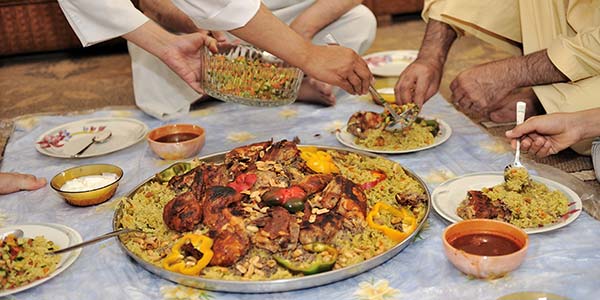
Food & Drink
The Jordanian cuisine is (in our opinion) one of the best and you don’t have to spend a fortune to get a good meal. That’s especially true in Amman where there are plenty of decent, cheap options. Meals often come as a small buffet which can include hummus, falafel, salad, baba ganoush, bread, fries and a drink and can cost as little as 3.5 JD ($5). Eating in a local diner will usually cost between 5 - 10 JD ($7 - $14), and a buffet lunch will set you back around 15 JD ($21). However, if you’re venturing into the more rural areas such as Wadi Rum, expect to pay a much higher price - think around 14 JD ($20) for a meal of meat rice and veg.
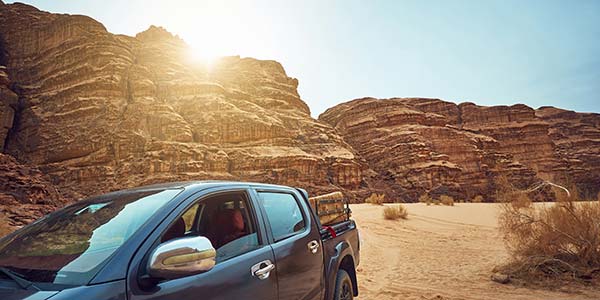
Transport
Transport is fairly reasonable in Jordan with a few options to choose from. For taxis in and around the city, budget for around 2 JD ($3) per trip. For a taxi from Amman to the airport, the cost will be around 22 JD ($31). Travelling by bus is by far the cheapest way to get around Jordan - we suggest a daily budget of around 5 JD ($7). Hiring a car is also becoming an increasingly popular option. You can pick up a standard car for around 50 JD ($70) per day or 4x4 car for around 120 JD ($170).
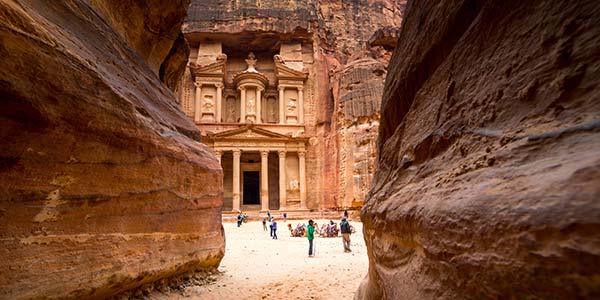
Admission Fees
Jordan is packed with incredible attractions that unfortunately don’t come cheap, but are well worth it if you can stomach the cost. Whereas unguided attractions tend to be reasonable sitting at around 10 JD ($14), guided activities are usually upwards of 50 JD ($70). A day pass for Petra is around 50 JD ($70) and two nights in the Wadi Rum desert costs around 120 JD ($170) per person.
Tipping & costs in Jordan
Tipping is usually expected in Jordan if the service received was agreeable. Local wages in Jordan are low for the tourism and service industries and many people rely on tips to supplement their wages. Leaving a small tip goes a long way.
-
Restaurants
It is generally expected that a customer will add an additional 5-10% tip to their bill if the service was good. You can also tip bartenders a small percentage or a couple of coins per drink. If you eat out at top-end restaurants, a service charge of 10% is usually included on the bill. For smaller diners, rounding the cost up is usually agreeable.
-
Guides
We always recommend that you provide a tip for your tour guides. If you are in a group setting, a bundle together is fine. We suggest to budget 10% extra for tips for your guides.
-
Transport
For taxi fares, rounding the cost of the journey up is the usual practice however in Amman, it is generally expected for the customer to add a 10% tip to the fare.
Top Tip!
ATMs are widely available at tourist attractions and major cities, however smaller towns may not have any at all. Make sure you plan for ATM stops.
Can you haggle in Jordan?
Yes, you can - but not for everything. It is widely accepted and expected for customers to barter with a seller for market goods and some tour operators - particularly for local guides and camel rides. Restaurants, hotels and transport almost always have their prices fixed. If you find that a taxi is not on the meter, you can sometimes bargain with the driver.
Featured Tours




